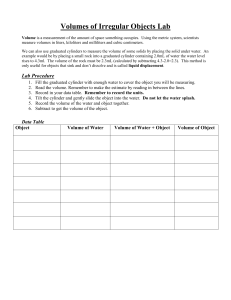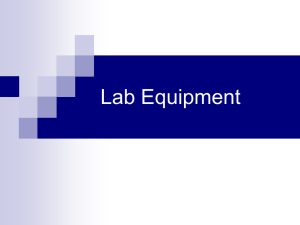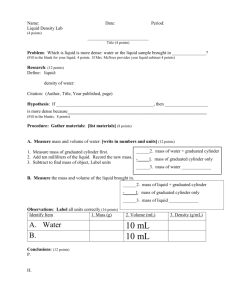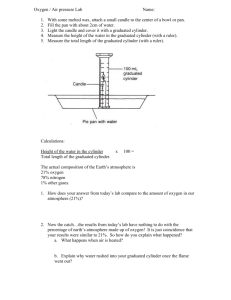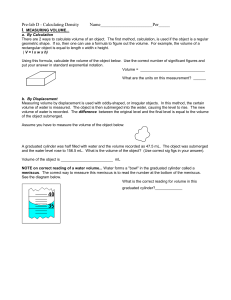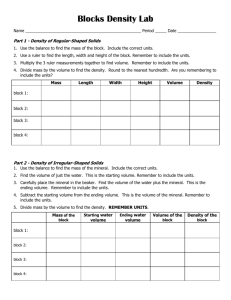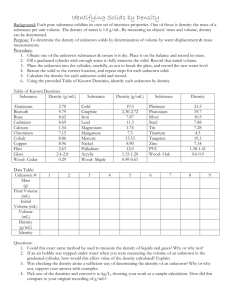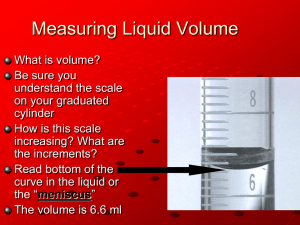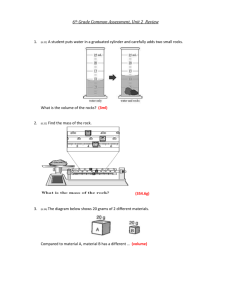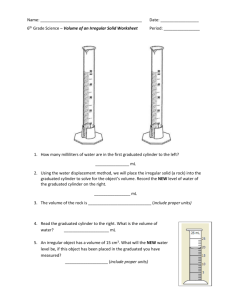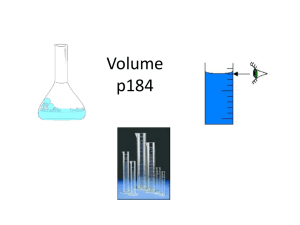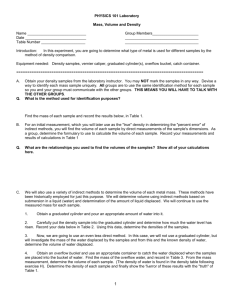MEASURING THE VOLUME AND MASS
advertisement
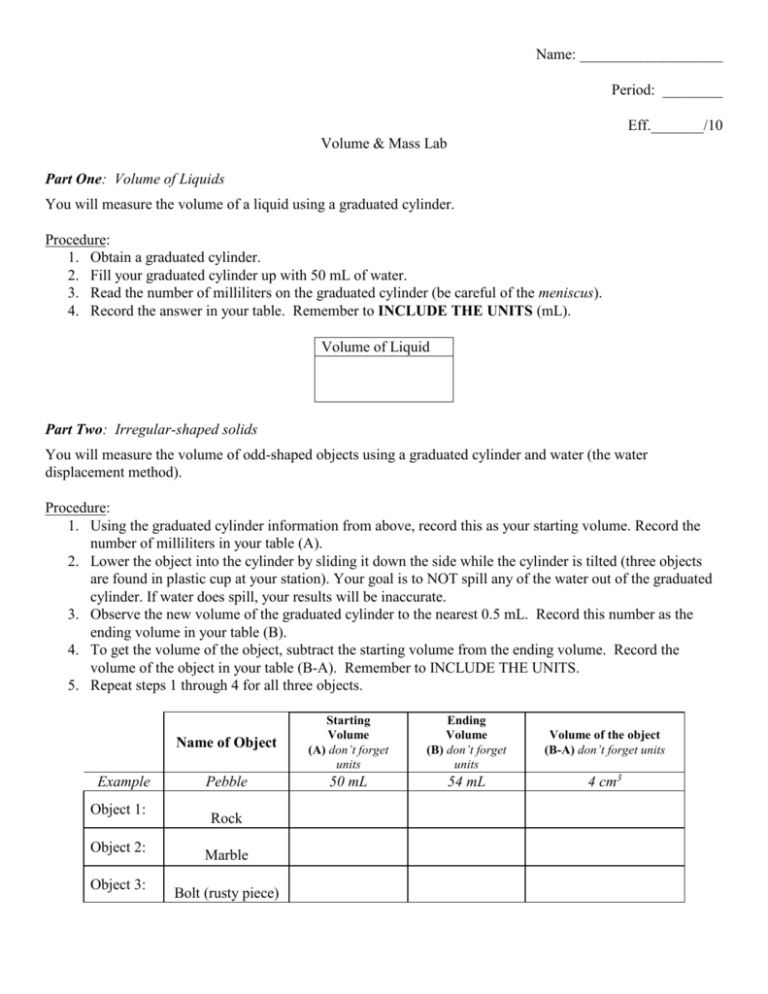
Name: ___________________ Period: ________ Eff._______/10 Volume & Mass Lab Part One: Volume of Liquids You will measure the volume of a liquid using a graduated cylinder. Procedure: 1. Obtain a graduated cylinder. 2. Fill your graduated cylinder up with 50 mL of water. 3. Read the number of milliliters on the graduated cylinder (be careful of the meniscus). 4. Record the answer in your table. Remember to INCLUDE THE UNITS (mL). Volume of Liquid Part Two: Irregular-shaped solids You will measure the volume of odd-shaped objects using a graduated cylinder and water (the water displacement method). Procedure: 1. Using the graduated cylinder information from above, record this as your starting volume. Record the number of milliliters in your table (A). 2. Lower the object into the cylinder by sliding it down the side while the cylinder is tilted (three objects are found in plastic cup at your station). Your goal is to NOT spill any of the water out of the graduated cylinder. If water does spill, your results will be inaccurate. 3. Observe the new volume of the graduated cylinder to the nearest 0.5 mL. Record this number as the ending volume in your table (B). 4. To get the volume of the object, subtract the starting volume from the ending volume. Record the volume of the object in your table (B-A). Remember to INCLUDE THE UNITS. 5. Repeat steps 1 through 4 for all three objects. Example Object 1: Object 2: Object 3: Name of Object Starting Volume (A) don’t forget units Ending Volume (B) don’t forget units Volume of the object (B-A) don’t forget units Pebble 50 mL 54 mL 4 cm3 Rock Marble Bolt (rusty piece) Part Three: Regular-shaped solids using two different methods You will measure the volume of regular-shaped solids using the ruler method (L x W x H). Procedure: 1. Using a metric ruler, measure the length, width, and height of the object to the nearest 0.1 cm. 2. Calculate the volume using the formulas below. 3. Record all your measurements in your table. Remember to include the units. Volume using the ruler method Formula LxWxH Name Length Width Height Volume of the object Juicy Fruit Box Text book Sour Patch Kids Box Kleenex Box Sponge Part Four: Mass Matter is defined as anything that has mass and occupies space. The mass of an object is a measure of the amount of matter it possesses. Mass may be measured by using a balance. The mass is expressed in grams (g). Use the balance to find the mass of 3 different objects. When using the beam balances Name of object Mass- using beam balance (g) Pen Nickel Sticky Note-Pad Conclusion: Write 3 sentences that describe your findings and methods used in today’s experiment. (Hint: what did you learn in today’s lab?) _______________________________________________________________________________________ _______________________________________________________________________________________ _______________________________________________________________________________________ _______________________________________________________________________________________ _______________________________________________________________________________________
